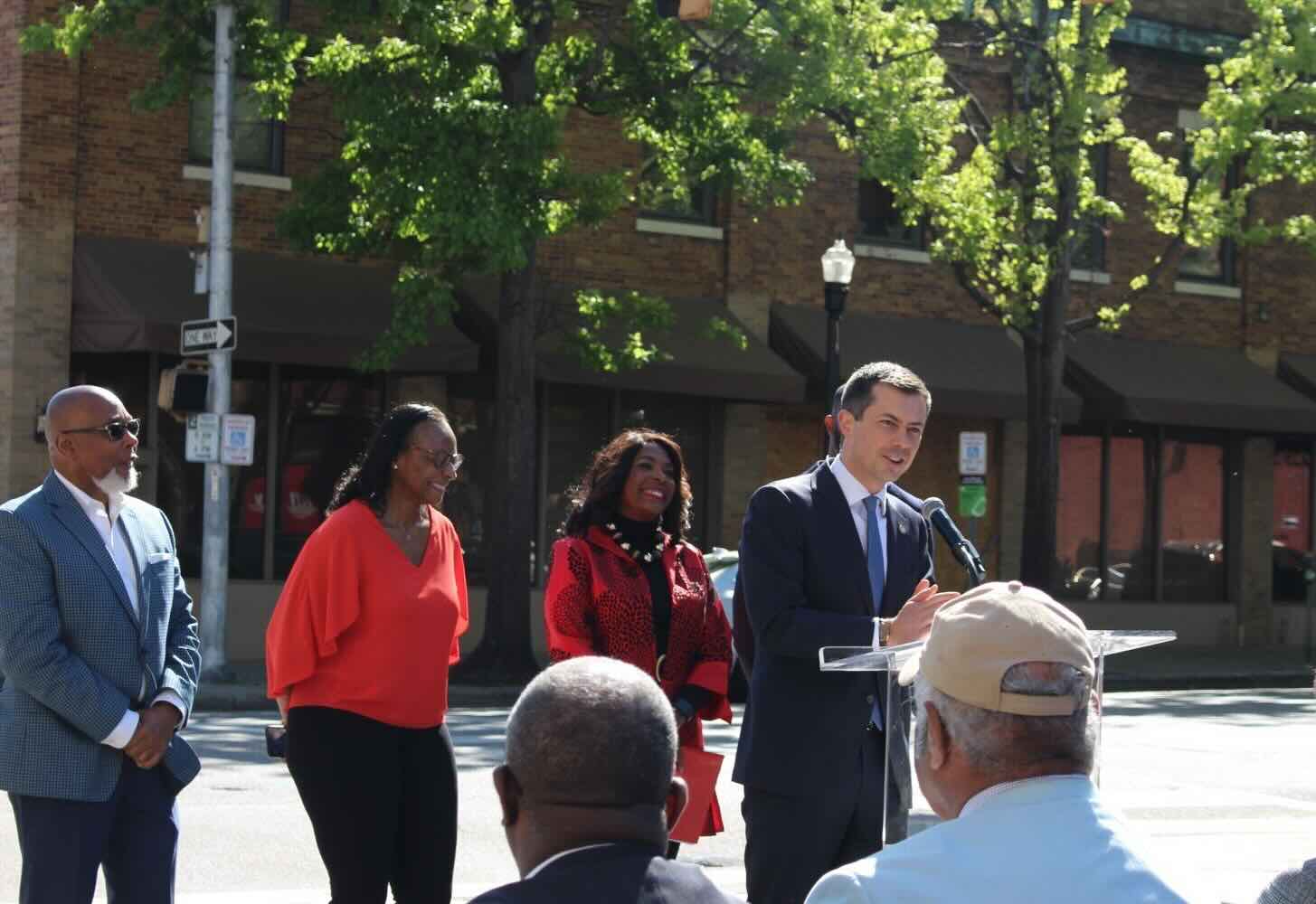ImpactAlpha, Feb. 9 – The fatal beating by police of Tyre Nichols in Memphis last month exposed risks to the city’s finances that have been hiding in plain sight.
Memphis and surrounding Shelby County have high rates of arrestees in pretrial detention, arrests for low-level offenses – and contracts with private equity-backed companies providing health and other services in the jails that are based on how many prisoners are incarcerated daily.
“And so you’ve got this strange flow of capital where your public dollars are subsidizing private interests that are undermining the economic security of the residents,” Activest’s Ryan Bowers said on Agents of Impact Call No. 48.
Activest got its start as an investment research and analytics firm in 2015, after Michael Brown was killed by police in Ferguson, Mo., where excessive fees and fines on their own residents of color represented another previously hidden risk factor.
“This is not just a Shelby County issue and it’s unfortunately not just a Ferguson issue. It’s not even just a private equity issue,” Bowers said. “It’s really about, what does justice and transparency look like in the municipal market? And how our public dollars and Black and brown bodies are being used to benefit everyone else, except Black and brown folks.”
Repricing risk
And just as some real risks are left unpriced, other misperceived risks are given disproportionate weight, reflecting both institutional and individual bias, said Diane Manuel of Adasina Social Capital.
A well-documented “Black tax” (for example, here, here and here) extracts higher interest payments based on often-misperceived risks in cities with majority Black populations.
“Is there discrimination? Probably. Some racism? More than likely,” said Manuel. “But more than likely, there are some systemic issues … causing the cost of capital for communities like these, underserved communities, to have to pay more to come to market to fix their water pipes.”
For small municipalities, “the economics” of bringing a bond deal to the muni market means more than higher interest rates. Bundling bond deals from multiple municipalities through state agencies known as bond banks is a time-tested way of achieving economies of scale, with benefits for both issuers and investors.
Active engagement
Eric Glass, an advisor to Justice Capital after 20 years at AllianceBernstein, suggests investors more actively engage underwriters and issuers either pre-issuance or during the primary issue.
Glass, for example, worked with grassroots organizations in Alabama to scuttled Alabama’s 2021 bond offering to finance public and private prisons. His work focused on raising the reputational risk to Citigroup, the bond underwriter who had earlier had made racial justice pledges, as well as fiscal risk for the state, which would have faced potential lawsuits.
Investors have the most leverage in the new issue market, says Glass. “That is your best opportunity to ask questions and to engage directly with issuers around their theory of change, around what they’re investing in, why they’re investing in it, how they’re tracking it,” he says. If bankers and issuers won’t respond, they risk losing the investment. “If you don’t get my order, you’re not optimizing the lowest cost of capital for your issuer,” he says.
“It’s, how do you nudge? How do you create certain incentives to get other parties engaged with this work,” says Glass, who says efforts to optimize muni markets for impact are “the beginning of a movement.” The attention “brings this notion that there is market demand for this work.”
Dana Bezerra, who left the Heron foundation earlier this year for Greater Share, welcomed the focus on impact in municipal finance. Impact and ESG investors fight hard for materiality and values in other asset classes. “Everything is material” in fixed income, she says, by the sheer nature of the duration and the longevity of the product.
Ratings agencies, underwriters and others in the space should be concerned with the risk posted to bonds from anti-democratic practices sweeping the country, says Bezerra. Long-term debt “requires successful communities to pay it back.”
Other Agents of Impact who joined The Call include:
RJ McGrail and Maya Hamberg of the Lincoln Institute, Jennifer Williams (a candidate running for State Senate in California), Slavi Stevanovic of Qatalyst Research Group, Sara Stalland McGarraugh of The Improve Group, Bonnie Burnham of Cultural Heritage Finance Alliance, Carrie VanWinkle of Natural Investments, Essence Smith of Partners for Rural Transformation, John Sherman of Sherman Impact Consulting, Bob Burris of Rural County Representatives of California, Yangbo Du of INNOVO, Julie Skye of Sustainable Advisors Alliance, Katie Macc of the Sorenson Impact Center, Mary Abad of City of San Diego’s International Affairs Board, Matt Lindsay of Quantified Ventures, Nicole Chavas of Greenprint Partners, Jeff Brenner of IMPACT Community Capital, Saurabh Narain of National Community Investment Fund, Andreana Reyes of Lili’uokalani Trust, Yoga Prakasa of Wings Financial Credit Union, Danielle Winter of Brooklyn Public Library, Charu Gupta of New Markets Support Company, Claire Bosch Zuazo of Anthesis Group, Brian Vo of Connect Humanity, Julie Katzman of the MacArthur Foundation, Jeff Mendelsohn of LocalCode, John Valinch of GreenRoots, Julie Hammerman of Lens Investments, journalist Andrea Riquier, Amy Curran at Chapman and Cutler LLP, Rahima Jamal of Align Impact, Ben Rojsuontikul of Microverse, Melanie Shumate of BerlinRosen, Jackie Logan of Raise Green, Paulina Stannard of CI Private Wealth, Natalie Cohen of National Municipal Research and Ina Lee at Global Impact Investing Network.
Resources shared on The Call:
- Bias in Credit and Credit Analysis (The Public Purse)
- School Transit-Oriented Development (Pedestrian Observations)
- Lincoln Institute’s Accelerating Community Investment, an initiative to mobilize investment in low-income communities
Previous ‘muni impact’ Calls:
- Mispriced risks, investor demand and community power center racial equity in municipal bonds (video)
More ‘muni impact’ stories:
- Activest’s FIRE strategy seeks to bend the arc of municipal finance toward ‘fiscal justice,’
- What Adasina learned about advancing ‘fiscal justice’ by investing $60 million in muni bonds
- ‘You can’t do impact on a passive basis’: Q&A with activist muni-investor Eric Glass
- Napoleon Wallace, Southern Reconstruction Fund: Restorative capital for Black wealth
- Optimizing the municipal bond market for health equity and racial justice (podcast)
- The ‘Black Tax’ plagues small municipalities. Can bond banks help?
- Managing social risks and addressing racial inequities in the muni bond market











